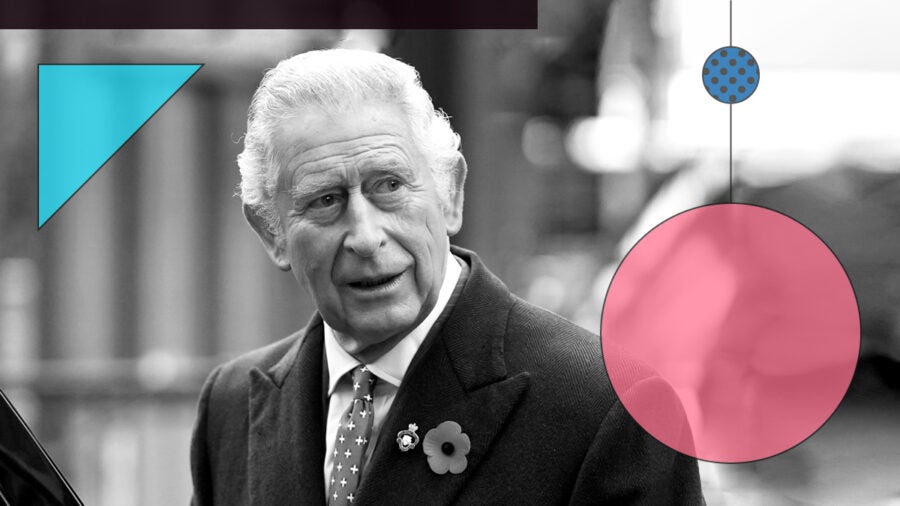
Hospitality sector set for coronation boost
Britain’s pubs, restaurants and retailers are hopeful that the UK’s first coronation in 70 years will provide a much needed boost to footfall and sales over the bank holiday weekend. Trade body UK Hospitality predicts that the coronation weekend could bring a £350m windfall to the sector as the nation celebrates the crowning of King Charles. This upturn has been warmly welcomed by its chief executive Kate Nicholls, as the sector continues to contend with high energy costs, inflation and staffing shortages.
The British Beer and Pub Association is equally optimistic, estimating a £120m boost to sales from the 62 million pints it predicts will be poured. However in other sectors, the additional bank holiday represents an economic drag as offices and factories close. During the late Queen’s Platinum Jubilee celebrations in June 2022, where there was also an additional day off for workers, GDP fell by 0.6%.
Whether the coronation will be a cause for celebration for the country’s faltering economy remains to be seen, but for the hospitality sector at least it is a reason to be cheerful.
BP and Shell profits soar
Oil giants BP and Shell recorded colossal profits in Q1, leading many to demand a more stringent windfall tax. BP announced profits of $5bn (£4bn) in the first three months of the year, while Shell’s reached $9.6bn (£7.6bn).
Sharon Graham, general secretary of the Unite union, has labelled the developments “one of the corporate scandals of our times” and accused the Prime Minister of enabling it. “Not taking any action against ‘big oil’ means the profiteering plundering will continue without end,” she said in a statement.
The Energy Profits Levy (the official name for the windfall tax) of 25% was introduced in May last year, when Sunak was chancellor. The levy only applies to profits made from extracting UK oil and gas, not from other activities, such as oil refinement or selling petrol, and not on activities outside the UK. BP says its UK businesses account for less than 10% of global profits, while Shell says the UK is roughly 5% of revenue. Both firms argue that they have lost a lot of money after stopping investments in Russia, following its invasion of Ukraine.
In the 2022 Autumn Statement, chancellor Jeremy Hunt announced that the levy would increase to 35% from January 2023 and last until March 2028. Yet, on the evidence of these Q1 profits, Graham suggests the levy is not aggressive enough.
Co-op shows its compassion
Co-op has launched a new bereavement leave policy to better support its 57,000 staff. The group, which has operations in retail, legal services, funeral care, social initiatives and education, is doubling the paid leave allowance for bereaved employees from five to 10 days.
Co-op will also enable managers to offer further paid leave, at their discretion, on a case-by-case basis. The group has made clear that the bereavement policy does not only apply to “immediate family” but to friends and colleagues too. The policy is accessible from the first day of an employee’s time with the company, irrespective of any probationary period.
The new policy, according to Co-op’s chief people and inclusion officer Claire Costello, is an acknowledgement that modern life can be complicated. She says: “We know that the death of someone close, or finding out about a terminal diagnosis, can affect people in different ways, so our new compassionate leave policy provides the right support to everyone.”
Unilever’s CEO pay row
Unilever shareholders representing 58% of its voting shares rejected the consumer goods giant’s pay policy on Wednesday. Alan Jope, who will step down as CEO later this year, is in line for a base salary of £1.4m plus a bonus of up to £3.16m. Since taking the reins in 2019, he’s earned a total of £16.4m – although never as much as his predecessor Paul Polman, who took home £10.31m in 2018.
While the vote is non-binding, it is a significant rebuke to Jope’s leadership of Unilever. Shareholders have criticised the company’s recent performance and botched takeover bid for Haleon last year.
The vote happened on the same day as Julia Hoggett, CEO of the London Stock Exchange, called for a “constructive discussion” about the UK’s comparatively low executive pay. She warned that British companies could find themselves struggling to attract and retain top talent. In 2021, the median S&P 500 CEO raked in 2.25 times more than their FTSE 100 equivalent.
The ongoing war between boards and shareholders over appropriate levels of CEO pay looks set to continue.

Hospitality sector set for coronation boost
Britain’s pubs, restaurants and retailers are hopeful that the UK’s first coronation in 70 years will provide a much needed boost to footfall and sales over the bank holiday weekend. Trade body UK Hospitality predicts that the coronation weekend could bring a £350m windfall to the sector as the nation celebrates the crowning of King Charles. This upturn has been warmly welcomed by its chief executive Kate Nicholls, as the sector continues to contend with high energy costs, inflation and staffing shortages.
The British Beer and Pub Association is equally optimistic, estimating a £120m boost to sales from the 62 million pints it predicts will be poured. However in other sectors, the additional bank holiday represents an economic drag as offices and factories close. During the late Queen’s Platinum Jubilee celebrations in June 2022, where there was also an additional day off for workers, GDP fell by 0.6%.
